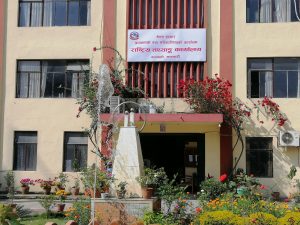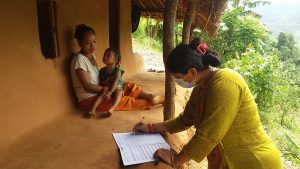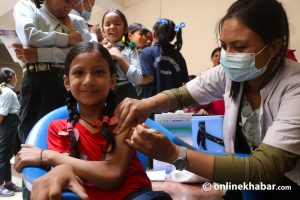
When global powerhouses were reluctant enough to take any crucial decision to control the coronavirus outbreak, Nepal went on lockdown in March end. The government traced, tested the suspected individuals, and placed them at quarantine and isolation sites. For a few weeks, the trace-and-test approach remained effective. However, in the last couple of weeks, the number of Covid-19 cases is in increasing trend. It seems the lockdown is ineffective.
However, as the number is increasing, the government is likely to extend it again. It will be sure to affect the poor families depending on daily wage earning-jobs. Though the government supported the poor and vulnerable families with food items, the support has not been sufficient to meet the need.
Lockdown impact
With lockdown, every single sector is severely affected. All academic classes are closed impacting the curriculum plan; individuals have not been able to reach out to health institutions for basic health services like any normal day; businesses of any scale are completely closed creating losses for entrepreneurs and business owners.
Many people have lost their jobs; daily wage earners lost their income sources; and most importantly, the suspension of transportation has damaged agricultural products at farmers’ yard itself. All these contributed to reducing the economic growth rate of the country, which is reflected in revised estimates of government agencies. Meanwhile, Nepal Rastra Bank reported the loss of Rs 168 billion in the national economy during the last two months.

Province-wise, Covid-19 has affected Province 2 and Province 5 the most. These two provinces are also among the provinces with the highest proportion of poor families with 35 % (Province 2) and 20% (Province 5) in comparison to the nationwide rate of 28.6%. With increased numbers of cases and the government prioritising stricter enforcement measures, people from these two provinces are definite to be affected in the near future.
Government response
Regardless of gender, caste, income status, and geography, the entire population is affected by the lockdown. Besides improving tracing and testing, the government is yet to make a concrete announcement with plans and programmes to respond to the needs of the public.
Families relying on daily wages are among the most impacted ones. For the first few weeks, the government made a public announcement to support the families who fall under the specified criteria. Local governments (paalikas) supported families across the country with food items in varying quantity and quality. Besides, nongovernment agencies also collaborated to address the needs of families with poor economic conditions and living in vulnerable conditions.
At the global level, some of the developed countries, namely Australia and the USA, announced the cash transfer. As there lies the potentiality of misusing the cash and creating further issues in Nepal, the government here warned the NGOs against distributing cash to meet the needs. Due to no income and no savings, food items received from different supporting hands may have reduced the hunger, but aggravated issues to meet other basic needs. Analysing the governments’ response to date, it looks more like waiting for the Covid-19 to end, instead of rapid response towards healing the damages caused.

As the government was announcing the annual budget plan, people were hopeful of receiving some sort of relief packages to respond to their problems. However, the government failed to meet their expectations. The experts already criticised the government for not being able to introduce programmes and packages that address the Covid-19-affected population. The government has failed to understand and respond to the varying levels of socioeconomic issues of the public living in diverse socioeconomic conditions.
Imminent steps
Each passing day, the number of cases is increasing trend. At one side, it is the government’s priority to protect the health of the public and control the spread of Covid-19. On the other side, it is also the government’s responsibility to address the needs of families with varying socioeconomic issues. With the lockdown, families relying on daily wages are forced to lose their income; it could have an adverse impact on several other aspects of life. The status of food security may increase; the families may adopt negative coping strategies (reducing the quality and quantity of food consumption practices). Moreover, some people may resort to criminal and violent means just to survive.
The lockdown could be a primary measure to control the outbreak, but not the ultimate one. During this period, the government must take stock of the situation of affected families scientifically, consult with experts, and announce relief and response packages to respond to the needs.
Formulating a Covid-19 national preparedness and response plan (NPRP) and instinctively waiting for bilateral and multilateral agencies to intervene will not work. The families are eagerly waiting for the government to hear something fruitful, meaningful, and useful for them.
Thapa is an MPhil student at Kathmandu University and is working with I/NGOs since 2012 in various development and humanitarian projects.























